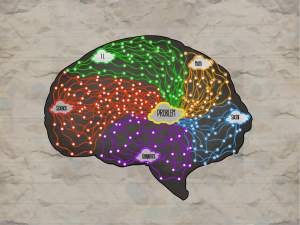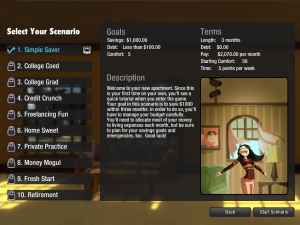OneNet Helps K20 Center Provide Interactive Learning Materials to Students Across Oklahoma
 For children in the digital age, their daily lives are immersed in technology. Technology has become an integral part of how we communicate, learn and enjoy our free time. While many digital tools seem to only have recreational value, leaders at the University of Oklahoma’s K20 Center are leveraging video game platforms to engage students in difficult education topics, and OneNet’s statewide network is bringing these resources to schools across the state.
For children in the digital age, their daily lives are immersed in technology. Technology has become an integral part of how we communicate, learn and enjoy our free time. While many digital tools seem to only have recreational value, leaders at the University of Oklahoma’s K20 Center are leveraging video game platforms to engage students in difficult education topics, and OneNet’s statewide network is bringing these resources to schools across the state.
The K20 Center is a statewide education research and development center that adapts instructional technology to improve student learning. Leaders at the K20 Center invest in research to better understand digital learning in order to help Oklahoma schools become high-achieving, interactive learning communities.
While technology is often viewed as an entertainment tool, whether video games or web surfing, leaders at the K20 Center aim to incorporate the enjoyment students find in technology into education initiatives.
Leaders at the K20 Center see video games as an avenue for students to engage with educational content that promotes higher-order problem solving, and in turn allows students to have a richer learning experience. However, in examining examples of other educational video games, Dr. Scott Wilson, director of innovative learning, found that the interface wasn’t as engaging or exciting as hoped for.
“The role of early educational games seems to be more of a ‘drill and kill’ mentality that assists students in memorizing facts and/or practicing skills,” Wilson said.
Instead, the K20 Center aims to design games that create meaningful learning experiences in a familiar and engaging way. Their process for developing new games begins with extensive research and consulting with subject matter experts to develop content that best meets the educational needs of students while also fostering learning in students.
“Game-based learning inherently provides learners with structured opportunities to take conceptual understanding and apply it to a real-world problem, with just-in-time supports to ensure success,” said Wilson.

“Advanced U: The Talent Machine” introduces students to the concepts of neuroplasticity and mindset theory.
After the content is created, the development process can take several months, as coders and artists work in tandem to create the game. Once a prototype is created, the game is then tested within focus groups. Throughout the process, the K20 Center gathers extensive data and conducts surveys to ensure the content and appearance of the game is as high quality as possible before releasing to the public.
Although the K20 Center had successfully designed educational games that were helping to engage students in important subjects, they still faced difficulties in distributing the content to schools across the state. Many of the game development efforts were supported through research grants, and while these grants helped support the creation of the content, they did not fully cover costs associated with distribution. However, with OneNet’s help, students across Oklahoma can now access all of the K20 Center’s content, and more teachers can incorporate these tools into their curriculum.
To help the K20 Center ensure students across Oklahoma had access to their materials, OneNet partnered with the organization to host a virtual server in OneNet’s data center. The server hosts the gaming software and provides students across the state with access to the games. By leveraging OneNet’s existing network, the K20 Center saves substantial time and financial resources. Without the partnership, the K20 Center would have to dedicate staffing resources to ensure proper maintenance of the server, while also paying substantially more to host the games on their personal server.
“Our partnership with the K20 Center demonstrates OneNet’s commitment to expanding educational opportunities across Oklahoma,” said Von Royal, OneNet executive director. “Our aim is to help organizations like the K20 Center advance STEM initiatives.”

In MYOB, students must navigate realistic budgeting scenarios.
Currently, one of the most popular games developed by the K20 Center is called “Mind Your Own Budget” (MYOB). MYOB teaches financial literacy and meets all of Oklahoma’s curriculum requirements.
“In MYOB, students are situated in their first apartment and tasked with meeting certain savings, debt and comfort goals while still paying bills and dealing with everyday life challenges,” said Wilson.
So far, over 6,000 high school students have played MYOB. In addition to MYOB, the K20 Center has developed games covering subjects like evolution, calculus and scientific data collection and interpretation. All of these concepts are integrated into fun and relevant gaming plots, so students can maximize their learning potential while enjoying the process.
With a mission of cultivating a collaborative network that creates and sustains innovation, the K20 Center is changing how children in Oklahoma interact with educational material. By partnering with OneNet, their innovative products are becoming more accessible than ever before.
Story by Alexandra Franklin, Spring 2018
